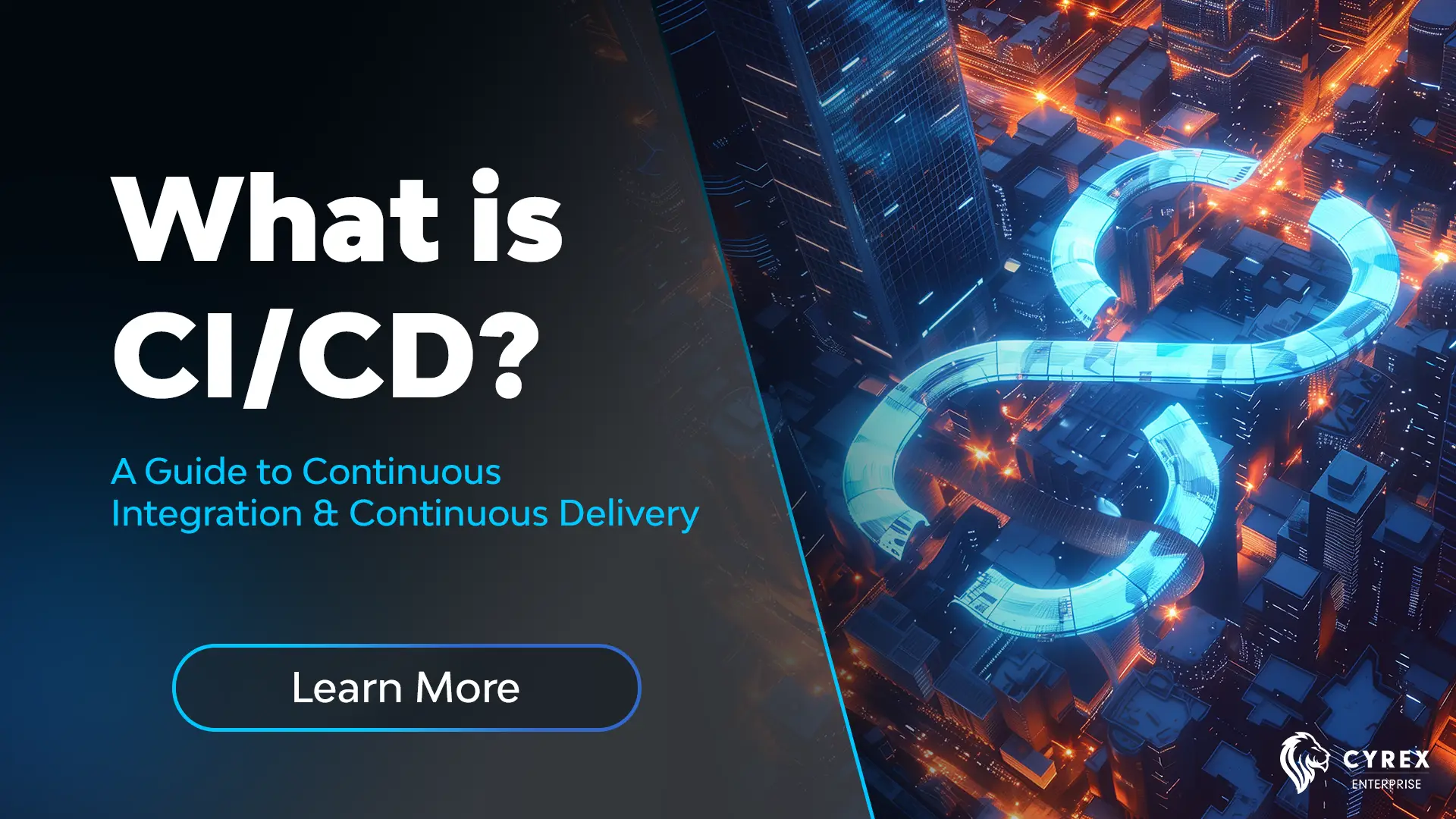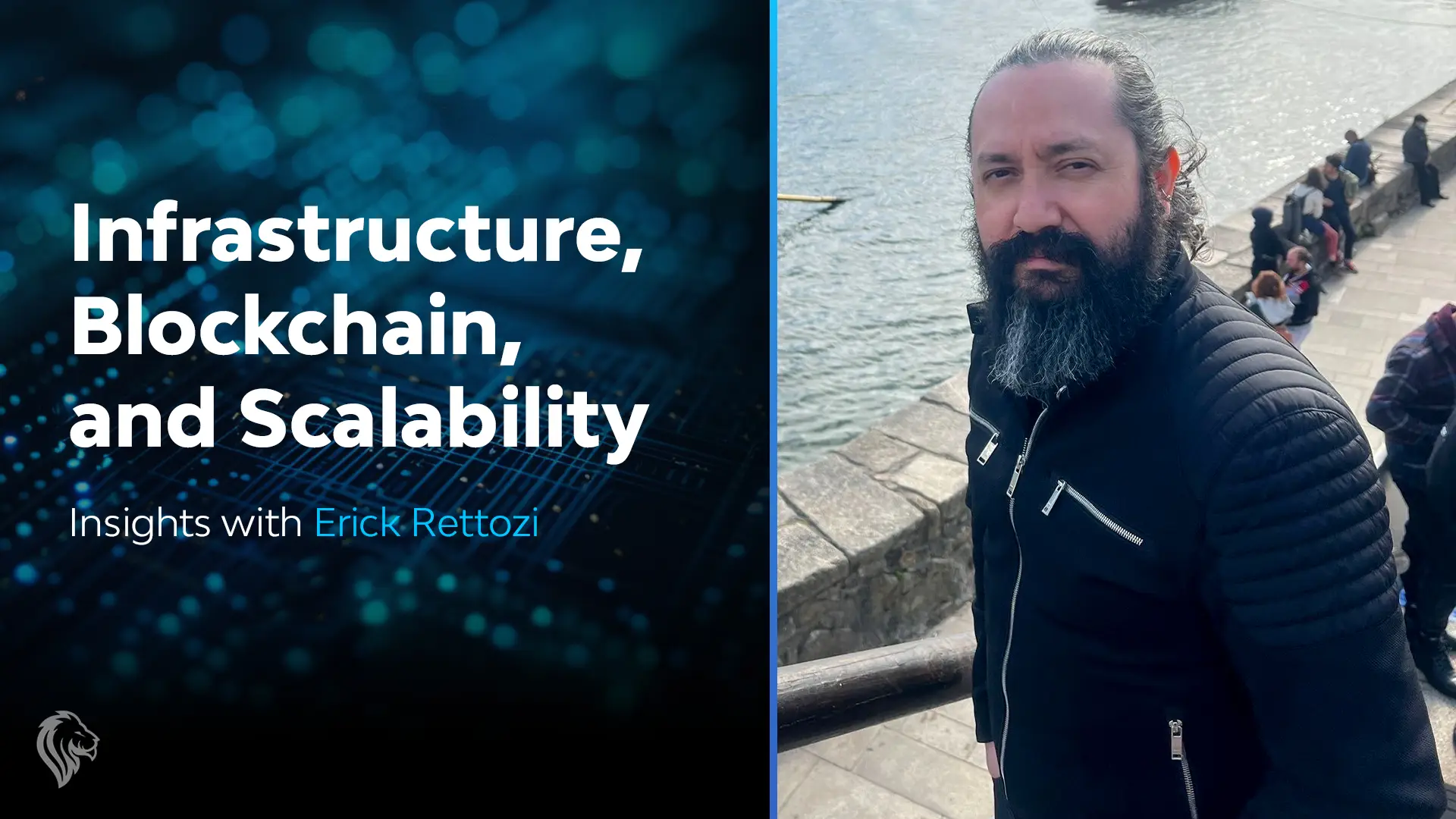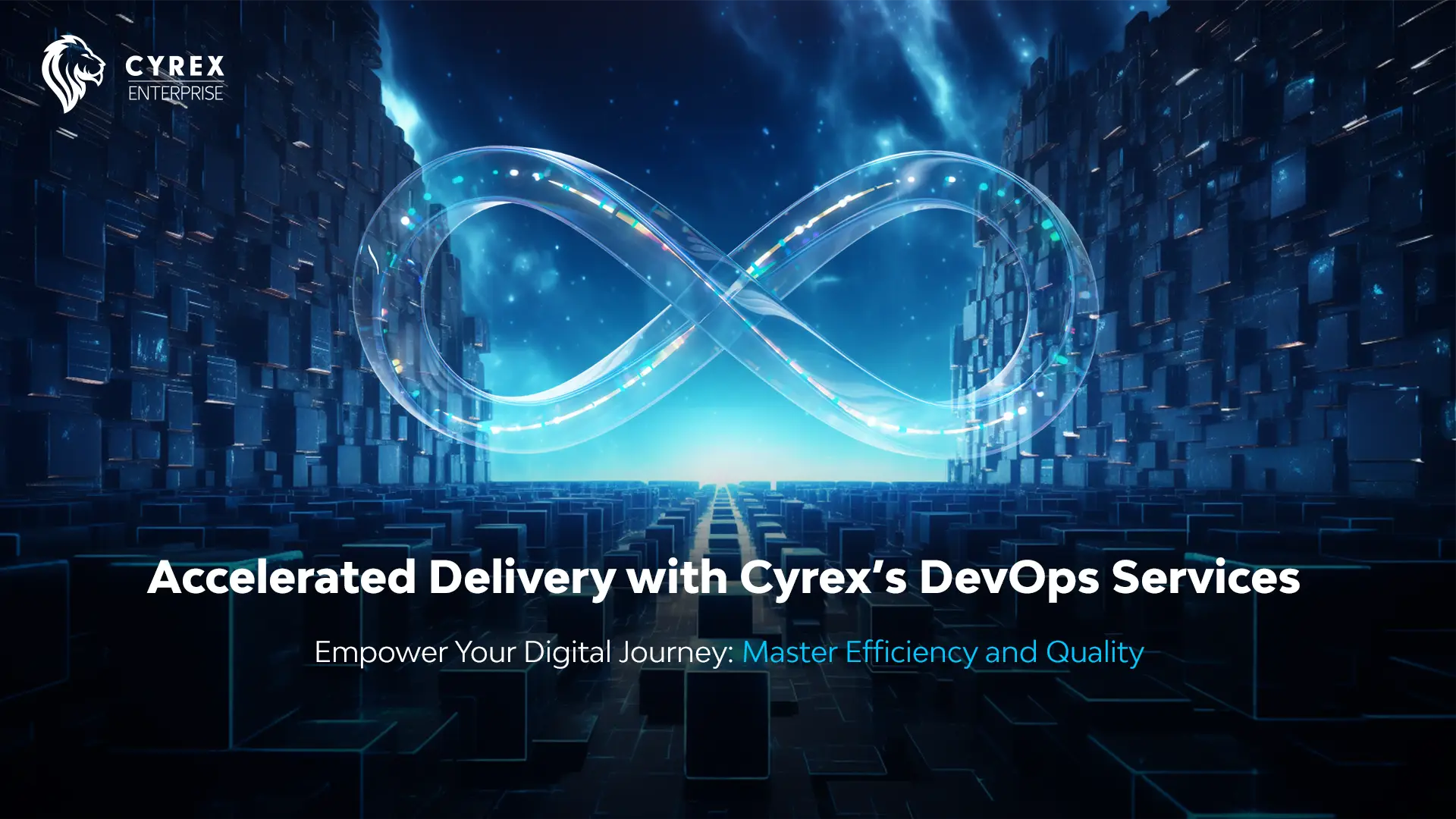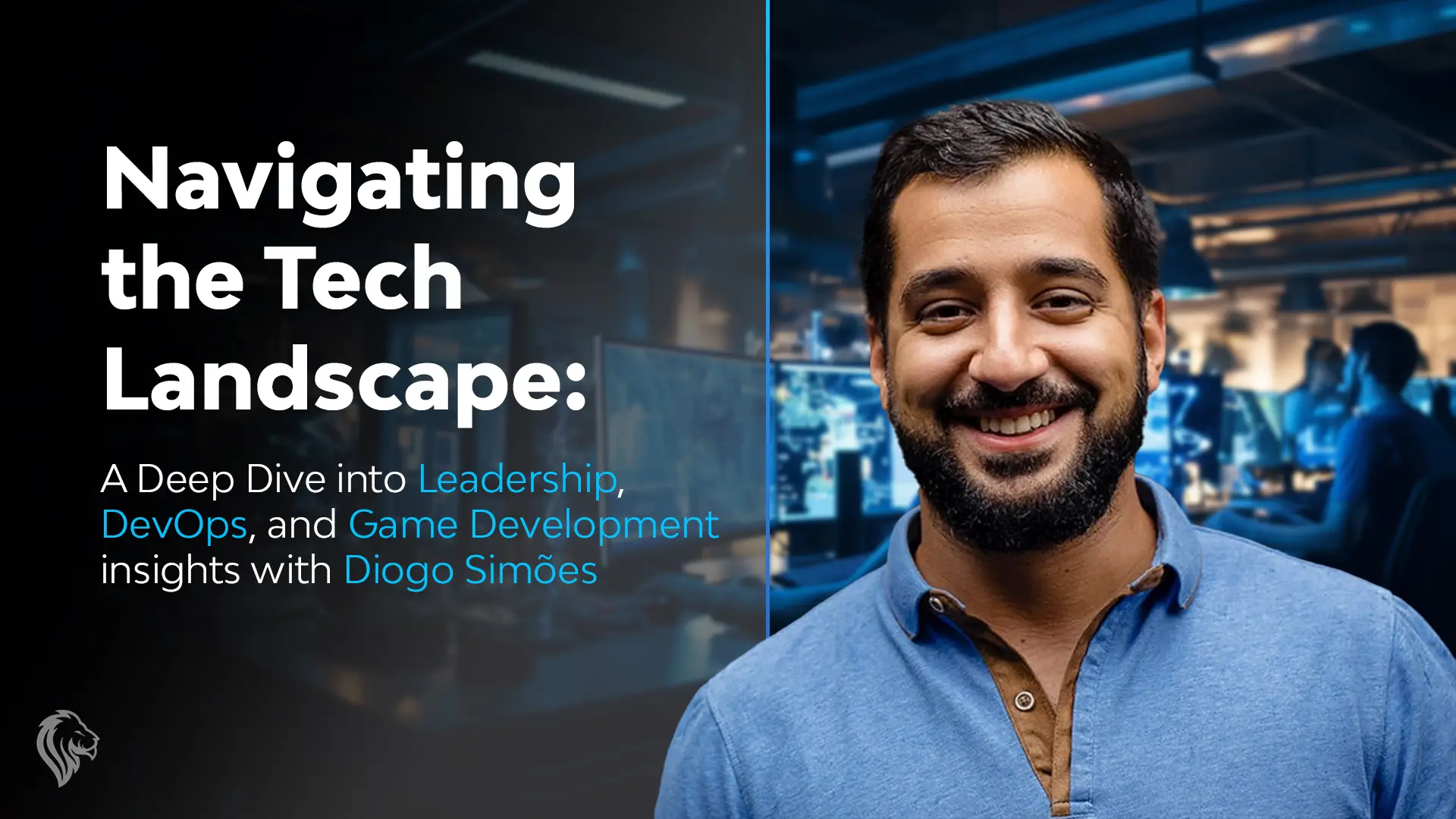This week we caught up with Diogo Simões is Cyrex Enterprise’s Tech Lead. Having joined 5 years previously and beginning his career as a Backend Developer, we chatted to him about his role, his introduction to DevOps and Game Development, and how he keeps up with the evolving tech world.
Roles and Responsibilities as Tech Lead
Being Tech Lead means being involved in a lot of projects and aspects of the team’s continuing work. “I tend to be an overseer of all technical activities. Our main goal is that we make sure that what we produce is the quality we expect and want.” Diogo is looking to ensure that all technical project goals are achieved, the team is sticking to the right path of efficiency and maintaining a future focused perspective.
“I’m not very hands on anymore – it’s all quite advisory now. I give ideas and offer alternatives to those already being considered. Analyse and develop timelines for the projects we get – resources, staff, budgets. I look and ask the question, ‘is it something we can achieve and deliver the quality we want?’ We always want to give our best to clients.”
Diogo also works a lot in recruitment as well! Mainly engaging in technical interviews with new potential staff.
Manging a Team in Cyrex Enterprise
“It was new to me! My first time in a position like this, a lot more management than software development. So, it really was a learning process each day.” The work of Cyrex Enterprise is more project-based management rather than product based these days. Project-based tend to be far shorter than a product lifetime engagement. “Of course, we have projects that go for a year or more but in general we’re talking 4-6, 8 months sometimes.”
This means working with a team who often switch projects and priorities. “So, our goal is to ensure the best people are in the right positions and keeping our developers happy. We put the people where they want and need to be – this helps us get the best results.”
A lot of time is spent trying to develop new practices. “We’ve had to expand our team to accommodate new projects and our goals. Which meant growing outside of Portugal for hiring.”
Diogo also mentions that COVID also put a lot of the team at home, which many have either remained full time or moved to a hybrid style. “Now, we have staff in Portugal, Brazil, Turkey, Cameroon. But we’ve lost a bit of our debates and interactions in the office over technical preferences or choices! To address this, we’ve started to implement knowledge sessions and project reviews of finished projects to keep that engagement, challenging our choices and decisions. It’s all in the name of continuing team growth and quality and keeping our team glued together in their love of the work.”
Approaching Interviews and New Staff
Diogo says that for our needs and hiring, it’s a constant balancing act for quality and availability. Of course, they also have to be the right for our team. All of it is in the name of keeping up with the industry.
“We carefully plan hiring of course. Checking our current projects, pipelines for potential or upcoming work.” But the process is usually quite succinct when it comes to hiring as we have a great process of filtering through our recruitment page. After that and a HR consult, we can do it quite quickly through a technical interview either me or a senior developer. “It’s all a balance of course, as it includes this process but also their availability and when they can join. Sometimes it works out, sometimes we have to pass on some great candidates.”
Software Development vs Game Development
Involvement with wider studios and collaborating with the Magic Media group now means our team have had a lot more interaction with game development. Before this, we were very much a traditional software development house.
“It’s been an interesting process, getting involved into the backend development/server side and working with game developers. Very different skills and a very different culture! It’s still software development of course but it’s not the same. Game development is very much rooted in creativity and there’s almost a feeling of necessity to be capable of development to create games. Whereas we’re used to developers who develop because they love it. This is by no means a critique of game developers! Just a different approach, which we learned a lot from. We were exposed to a lot of new technology and new use cases. There was always something new to consider, which was a refreshing experience. And we hope they learned as much from us as well.”
DevOps and Scalability
Diogo was used to all the server-side elements, the things you don’t see when you interact with an app. To him, in his early developer days DevOps was scary and a little boring! “But as I progressed in my career, it became a necessity and something I eventually embraced as part of my job as a backend development expert. Otherwise, I’d be very limited.”
To define it, he says “DevOps is a set of practices, tooling, and cultural philosophies that are adopted by teams and organizations with the goal of improving software development and infrastructure management”. Diogo elaborates by saying, “The DevOps skillset usually implies a lot of knoweldge about software development tooling and automation, good practices in the development life cycle, as well as cloud infrastructure, networking, and more.”
And when asked about its adoption by teams and himself, he said “Day to day, I believe it to be inevitable if you’re looking to produce high quality products. The DevOps mindset and approach to work pushes you to a path of using the best tools for the job – it’s all about efficiency and minimising chaos/issues in the project. It encourages best practice approaches.”
Managing Multiple Projects with Multiple Staff at Once
“I run a lot! I’m joking of course.”
Diogo expresses that the team is well-handled in size and that they work with a select group of technologies. “We have a tight team and only a few tech stacks we work with. Project based development means that a varied skillset with too many tools, offers significantly more variables and issues to manage. We have an efficient and directed expertise that we can deploy to almost any project, it gives us huge flexibility across each project.”
Keeping up with Evolving Tech, Tools, and Trends
It’s a fast industry. Diogo says that “everyone seems to have their own ways to manage the ever-rolling snowball of tech developments.”
For him, it’s quite simple and just about keeping an eye on things and a finger on the pulse. The best place, he laughs, “Reddit. It gives a pretty decent overview of the landscape. Out of all the available forums and such, Reddit has a strong social network component for engagement and discussion. It’s not the best place, as any social network has a lot of noise, but checking in on the right subreddits will give a pretty good look at how things are progressing. Once something comes up, I can follow up myself and explore it as needed. Hackernews is an old one too, niche, but has good content to keep up!”
Of course, the team also engage in the office and online, sharing discoveries and discussion what we’ve found. “Once someone finds something, we all discuss it and explore what it could offer.”
Finishing Up
Diogo finishes up by saying that he’s proud to work with a team of engaged and proactive developers, “ones who are always looking to check your answers and ask if what we’re doing is the best we can do. Or if there’s a better way to get the results we can deliver.”
Related Articles

What is CI/CD? A Guide to Continuous Integration & Continuous Delivery
Learn how CI/CD can improve code quality, enhance collaboration, and accelerate time-to-ma...
Read more
Infrastructure, Blockchain, and Scalability with Erick Rettozi
In this article, Cyrex' Lead Backend Engineer Erick Retozzi offers expert advice on buildi...
Read more
Building Partnerships and Navigating Misconceptions in Cybersecurity
Mathias Deloof, Strategic Partnership Manager with Cyrex and Cyrex Enterprise, discusses h...
Read more
Accelerated Delivery with Cyrex Enterprise’s DevOps Services
Efficiency and improving our quality of work are two elements of our services that we’re...
Read more


